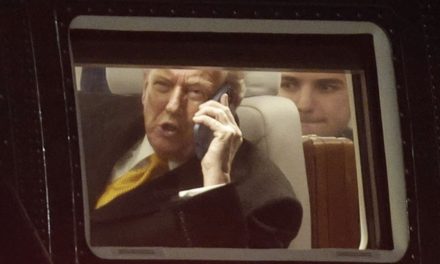
IRS Seized $17.1 Million from Law Abiding Small Businesses
According to a recent report, the Internal Revenue Service seized about 17.1 million from 2012 to 2015 from individuals and businesses due to how they managed their banking account.
Most of the victims of the IRS are innocent and are wrongly thought to be involved in “criminal enterprises.” The Treasury Inspector General for Tax Administration’s (TIGTA) report said that the IRS seized these funds without any evidence of underlying criminal behavior.
“In a classic case of seize first, ask questions later, TIGTA found that the IRS from 2012 to 2015 targeted individuals and businesses that on the surface seemed to be violating anti-structuring provisions — making deposits under $10,000 to avoid scrutiny and proper reporting under the Bank Secrecy Act (BSA),” writes Newsmax.
The BSA law was put in place to help detect criminal activity and to catch “smurfing,” which is when someone deposits a lot of small amounts to avoid having to make a report when they deposit $10,000 or more.
91% of the funds involved in 278 investigations by the TIGTA were taken from innocent parties by the IRS, meaning there was no crime committed.
Then the victims of the federal agency have had tremendous trouble getting their money back.
The TIGTA reported that “property owners were left to prove their innocence, and many gave up trying.”
“That is just a shocking, shocking statistic,” said Robert Johnson, an attorney at the Institute for Justice to The Blaze. “It shows the cases we’ve been bringing are not isolated incidents by any stretch of the imagination. This is the bread and butter of what the IRS has been doing for years.”
The TIGTA’s report also revealed that out of 54 cases where the individuals or businesses provided explanations for the deposits under $10,000, 43 of them were not considered by the IRS Criminal Investigation unit.
“However, TIGTA found that the IRS’ Criminal Investigation (CI) unit, using a strategy of “quick hits” — “where property was more quickly seized and more quickly resolved through negotiation” — instead targeted individuals and businesses whose income was legally obtained,” writes Newsmax.
Not to mention, the IRS violated the rights of these victims.
“The report also concludes that the rights of some individuals and businesses were compromised in these investigations,” said the TIGTA in a statement. “When property owners were interviewed after the seizure, agents did not always identify themselves properly, did not explain the purpose of the interviews, did not advise property owners of any rights they might have, and told property owners they had committed a crime at the conclusion of the interviews.”
Allegedly the IRS is no longer practicing this “quick hit” method.
Editor’s note: Although techniques like smurfing have been used by drug dealers for years as a money laundering technique, so they don’t have to deposit a large amount of their illegal gains and report it, it is perfectly legal to make deposits of ANY size. For the IRS to seize funds solely based on a pattern is illegal. It completely violates the 6th amendment, on the presumption of innocence.




























My tin foil conspiracy theory is Trump goes hand’s off Europe in return for Putin’s hands off on the Americas.…
Uncle Dung can’t put two words together to wage a decent argument so he lowers himself to the gutter. I…
Mike f as in fag is spewing dung just like Dunger
Larry, I don't know if you write the titles for your tomes, but with regard to this one 'how long…
And Dunger can kiss white MAGA ass.